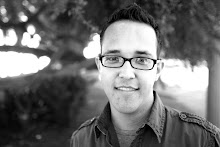The idea of a latent God is unsettling to me. What does it mean for my faith if I am forced to recognize that--as far as I can tell--God exists as potential? Does it mean that I don't really believe in God? Or is all of this just part of faith? Is there such thing as faithful agnosticism? Does the latency of God change everything? Or does it change nothing? What are the consequences of acknowledging that God is latent?
One of the big questions this raises for me is this: What/who do I believe in if God is only potential? Does that mean that I believe in nothing? Does that mean that all I am holding on to is a thin strand of hope? Or does it actually have no effect on faith? Perhaps all I am doing is placing emphasis on the uncertainty that makes faith possible. When I acknowledge that God exists as potential, does that undermine or undergird my faith? I'm not sure that I have an answer to that yet.
Even if that question remains unanswered, I am faced with another: What does the latency of God mean for the way I live my life? I'm not sure what it means in a broad way, but I know that it affects many small things. It means that whenever I pray for help I am faced with the possibility that there is no one who will help me. In a way, it makes everything conditional. My prayer becomes, "God, if you are there, please help me." (But please note that the conditional clause is not an expression of doubt; rather, it is a recognition of the reality of my situation.) On the other hand, because God is uncertain, any ordinary faithful act is transformed into an act of faith. It means that going to church on Sunday or reading the Bible are more than just activities that Christians commonly do; instead, they are active expressions of faith in spite of uncertainty. Even though the latency of God transforms these simple acts into demonstrations of faith, it also means that life is lived with the knowledge that these Christian acts could be for naught. The hopeful possibility of faith can never be separated from the morose possibility that faith is in vain.
Does it make any sense to place my faith in a God whom I recognize to be latent? Is it really faith or is it merely hoping in some faint possibility? Is this faith just something I do to console myself in the face of a tragic world and an uncomfortable life?
Is there a difference between believing in God while ignoring all the uncertainty and purposely believing in that uncertain God? Is it crazier to have faith while denying the obvious morose possibilities or to have faith despite those possibilities?
Read my first two posts on this subject: "Acknowledging a Latent God" and "Confronting a Latent God."
Tuesday, November 27, 2007
Subscribe to:
Post Comments (Atom)


No comments:
Post a Comment
Let me know what you think....